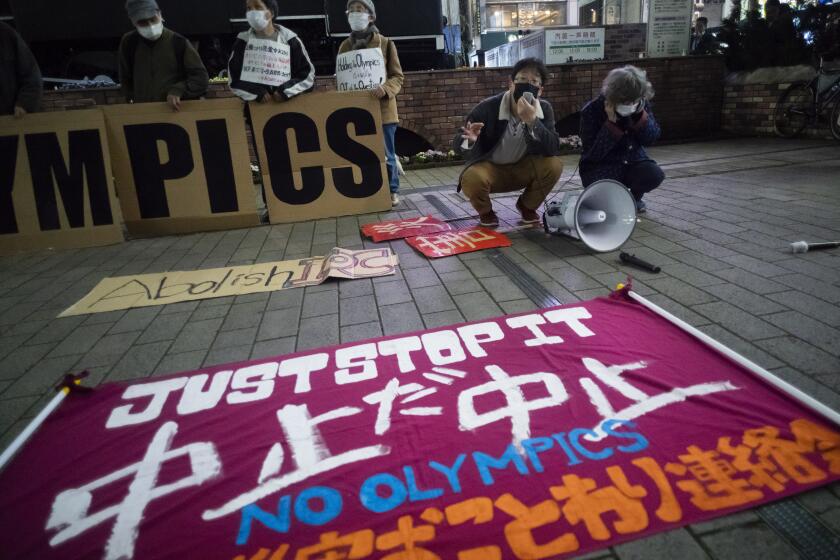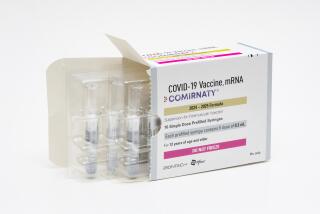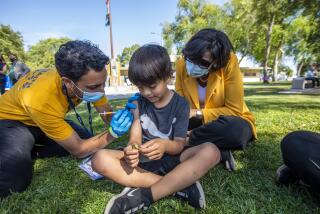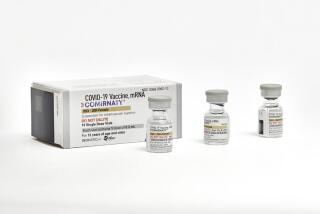Japan gives preliminary OK to two more COVID-19 vaccines
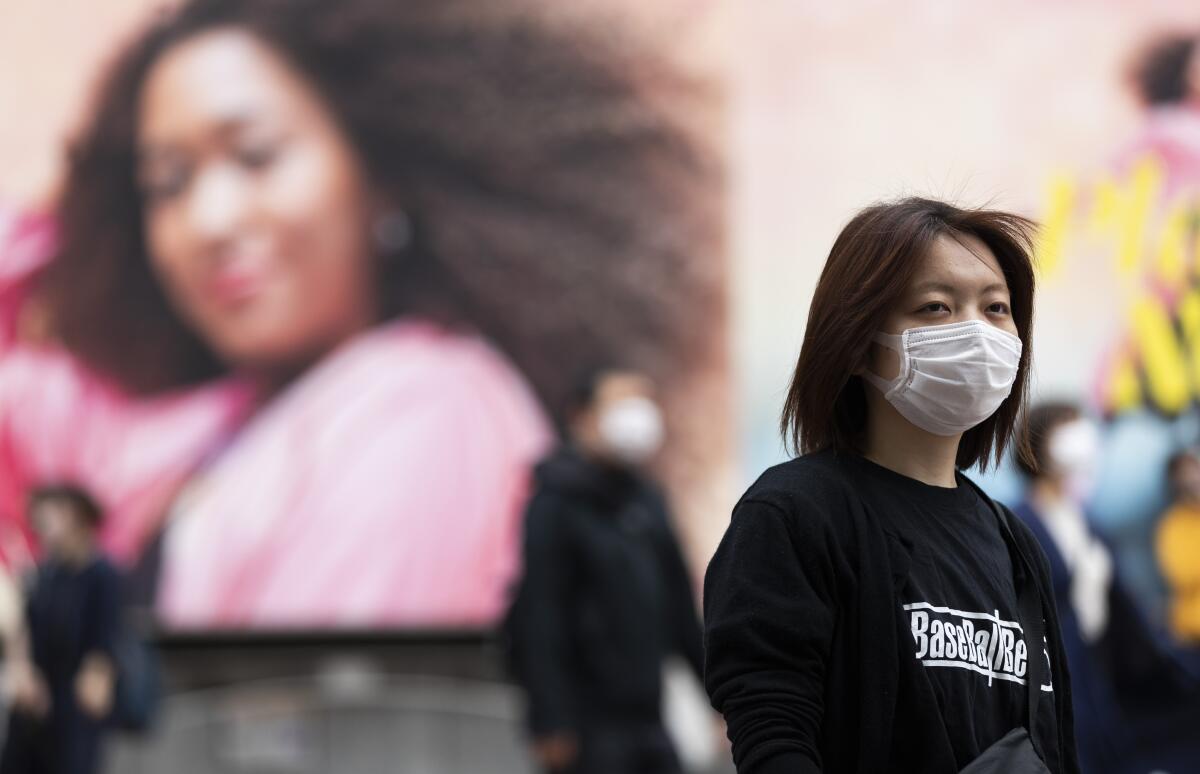
- Share via
TOKYO — A Japanese health ministry drug safety panel on Thursday gave preliminary approval to COVID-19 vaccines developed by Moderna and AstraZeneca.
The move comes as the country plans to expand its slow-paced immunization program next week in advance of the Tokyo Olympics.
The only COVID-19 vaccine currently approved for emergency use in Japan is the one made by Pfizer and BioNTech.
Formal approval of the two additional vaccines is expected Friday by a broader vaccine policy panel, officials said.
Health Minister Norihisa Tamura said approval of the additional vaccines will help speed up inoculations. Japan has administered one or more vaccine doses to roughly 5 million people, or just 4% of the population.
As the government pushes to host the Olympics in about two months, accelerating vaccinations is key to warding off mounting public concern about the safety of the event. Recent polls have found that more than 80% of Japanese oppose hosting the Olympics this summer.
Prime Minister Yoshihide Suga has pledged to finish vaccinating the country’s roughly 36 million elderly population by the end of July, when the Games are to be held. However, a government survey of 1,741 municipalities released last week found around 15% would not be able to meet the deadline.
With 3% of its population vaccinated, and Tokyo and other prefectures under extended states of emergency, there’s no justification for Japan hosting the Olympics.
On Monday, the government will open mass-vaccination sites in two of the country’s biggest metropolitan areas, Tokyo and Osaka.
The goal is to administer vaccines to up to 15,000 elderly people a day. Moderna shots are to be used at the sites.
Japan has secured around 364 million vaccine doses, including 50 million of the Moderna vaccine through a contract with Tokyo-based Takeda Pharmaceutical, 120 million from AstraZeneca, and 194 million from Pfizer. All three vaccines require two doses.
Associated Press writer Mari Yamaguchi contributed to this report.
More to Read
Sign up for Essential California
The most important California stories and recommendations in your inbox every morning.
You may occasionally receive promotional content from the Los Angeles Times.
